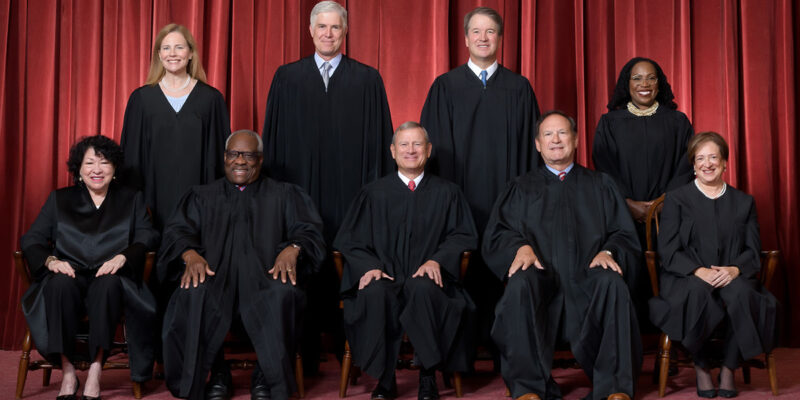(By Emilee Calametti/The Center Square) — The U.S. Supreme Court declined to make a decision on Louisiana’s redrawn congressional districts on Friday, pushing it to be reargued at a later date.
The court, which wrapped up its term on Friday, said it will issue an order in the case to schedule new arguments and detail what kind of questions the court wants addressed.
Justice Clarence Thomas issued a blistering dissent on the postponement of Louisiana v. Callais on Friday.
“We should have decided these cases this term,” said Thomas in his dissent. “These are the only cases argued this term in which our jurisdiction is mandatory. Despite the cases having been fully briefed and argued, the Court today punts without explanation.”
As reported previously by The Center Square, the state was defending the existing map and plaintiffs sought an overturn on grounds of a racial gerrymander. The case could be pivotal as justices could examine the criteria required of state legislatures under the Voting Rights Act when it comes to balancing representation of minority groups with the drawing of geographically compact districts.
The key question, according to Thomas, was finding a solution to the conflict between the Voting Rights Act and the the Equal Protection Clause of the Fourteenth Amendment to the Constitution.
The newly-drawn 6th Congressional District stretches along the Red River from Shreveport in the northwestern part of the state to Alexandria and finally down to the majority-Black areas of Baton Rouge.
The new map was drawn by lawmakers to connect multiple majority-Black areas together to create the court-required second majority-minority district.
The case could have ramifications for redistricting cases in other states.
Several other states – Georgia, Idaho, Indiana, Iowa, Mississippi, Montana, Nebraska, South Carolina, Tennessee, Texas, Utah and West Virginia – joined an Alabama amicus, or friend of the court, brief that said constant litigation is making it impossible for legislatures to redraw congressional districts without facing a flurry of lawsuits.
This is a point that Thomas agrees in his dissent.
“These cases also warrant immediate resolution because, due to our Janus-like election-law jurisprudence, states do not know how to draw maps that ‘survive both constitutional and VRA review,'” said Thomas.
The Louisiana Legislature adopted new maps under Senate Bill 8 to replace the ones drawn in 2022 during a five-day special session called by Gov. Jeff Landry in 2024 to address a court order from U.S. District Judge Shelly Dick to redraw the state’s congressional districts by Jan. 31.
Later, a group of “Non African-American” voters filed a lawsuit, saying that the new maps represented an unconstitutional racial gerrymander. The U.S. Supreme Court issued a stay to stop a lower court order that would’ve required the districts be redrawn again before the November election.
The order was issued in the case known as Robinson v. Landry. Plaintiffs in that case said Black voters were unable to vote for the candidate of their choice with only one majority Black congressional district in the 2022 maps since one third of the state’s population is Black. Dick ordered lawmakers to draw a new map.
Advertisement
Advertisement

